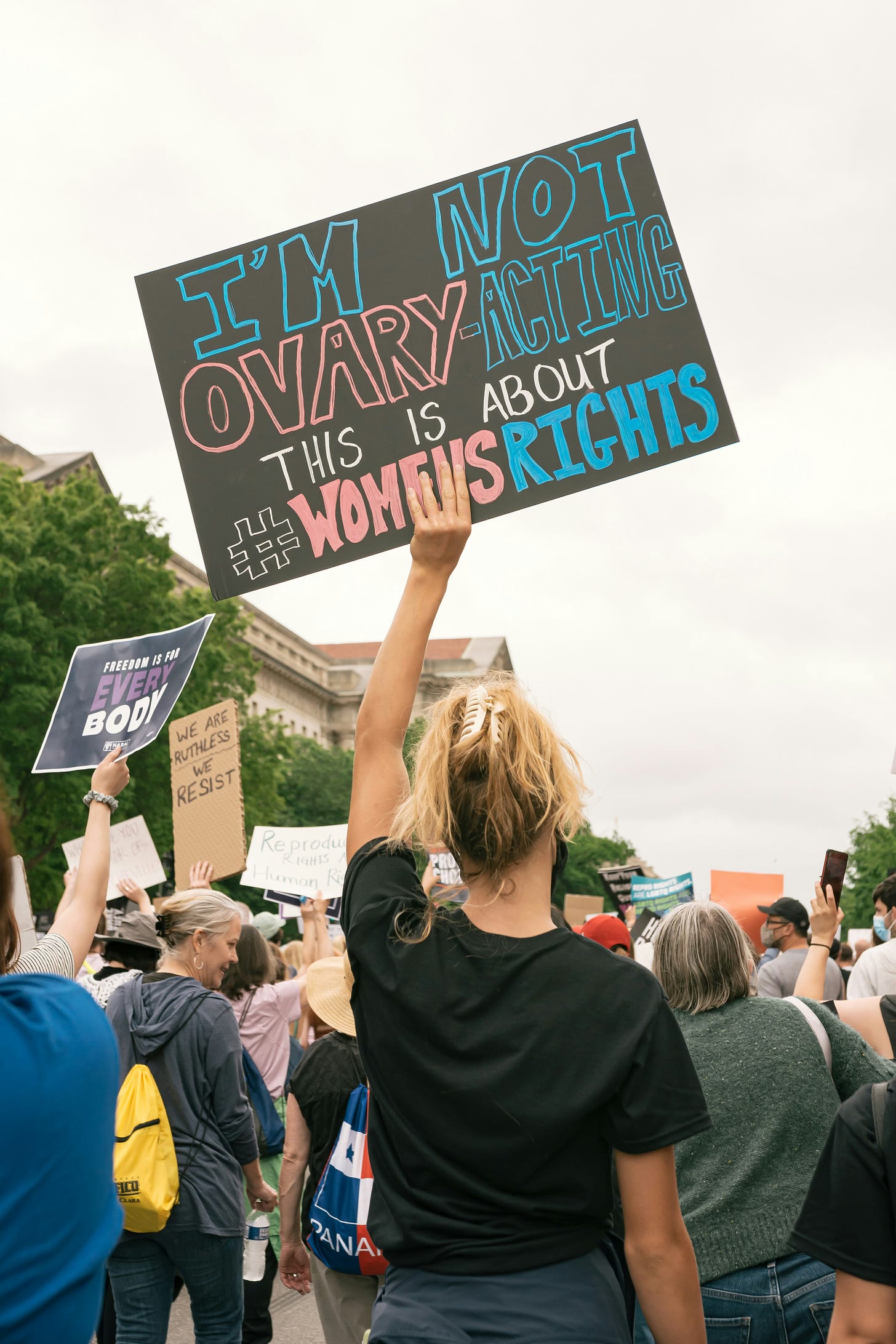The Access to Family Building Act: A Critical Step for Reproductive Freedom
In our country, the fight for women's reproductive rights is more critical than ever.

Welcome to a new Sunday morning series in which we cover an issue one of our member organizers is working on. We hope to have one in your inbox each week before you get comfortable and watch your favorite Sunday show. As always, thank you for your support! -Jason
Not only is access to abortions and contraceptives under siege, but now, even the availability of in vitro fertilization (IVF) treatments is at risk.
A recent alarming ruling by the Alabama Supreme Court has classified stored embryos as "extrauterine children," potentially jeopardizing families’ access to IVF treatments. In response to such state-level efforts, the Access to Family Building Act (H.R. 7056/S. 3612) seeks to establish federal protections for IVF treatments and maintain the continuity of care for those needing assisted reproductive technology (ART) services.
Read on to learn about the critical importance of protecting and expanding access to IVF as well as shielding the doctors and clinics providing these services.
Background on the Alabama Ruling
Back in December 2020, a mishap at an Alabama fertility clinic resulted in the accidental destruction of stored embryos. This incident led to three couples suing the clinic under the 1872 Wrongful Death of a Minor Act.
Initially, the trial court ruled that embryos don't count as children legally. However, the Alabama Supreme Court later flipped this decision, with the majority voting to treat stored embryos as children deserving full legal protections.
This controversial ruling caused an uproar, leading Alabama to quickly grant IVF providers civil and criminal immunity. Despite this safety net, the damage was done; clinics had already paused their services, throwing many families into a state of panic.
Why We Need Federal Protections
Without federal safeguards, rights to reproductive health care, including IVF, remain vulnerable to state-level attacks. Congresswoman Susan Wild and Senator Tammy Duckworth's Access to Family Building Act seeks to establish a nationwide right to ARTs.
This move comes at a crucial time. Recent legal challenges and decisions highlight the increasingly restrictive environment for reproductive health services in the United States:
Dobbs v. Jackson Women’s Health Organization: This U.S. Supreme Court decision overturned Roe v. Wade, removing federal protections for abortion and allowing states to set their own abortion policies.
Alliance for Hippocratic Medicine v. FDA: This case, involving the drug mifepristone used in medical abortions and miscarriage management, raises questions about the FDA’s approval process and could impact the availability of medication abortion.
Idaho v. United States: A legal battle over Idaho’s near-total abortion ban highlights conflicts with federal law regarding emergency medical care, which may include abortion.
Texas Senate Bill 8: This bill enacts one of the strictest abortion laws in the United States, allowing private citizens to sue anyone who performs or aids in an abortion after a fetal heartbeat has been detected.
Oklahoma HB 4327: This law makes performing an abortion a felony, punishable by up to 10 years in prison, significantly impacting reproductive healthcare providers and their ability to offer services.
Combined with the Alabama Supreme Court decision, these rulings further emphasize the need for clear, federal guidelines to protect access to ARTs and other reproductive health services.
What the Access to Family Building Act Offers
The Act would ensure access to ART without undue restrictions, safeguarding individuals' rights to control their reproductive genetic materials. This right is fundamental, whether people choose to use their genetic materials for reproduction or research, keep them frozen, or discard them.
Additionally, the bill ensures that healthcare providers and insurers can offer these services without facing legal obstacles.
When introducing the bill, Congresswoman Wild shared her own struggles with infertility on the House floor, adding that infertility affects one in five women, according to the Centers for Disease Control and Prevention. It’s crucial, she argued, that we support these women, not restrict their options.
Looking Beyond Reproductive Rights
The Act also has backing from Michigan Attorney General Dana Nessel and a coalition of 21 attorneys general. They argue that beyond individual rights, the legislation offers broader economic and social benefits.
Over 2% of U.S. babies are conceived through ART annually in the United States, with treatments costing upwards of $20,000 per cycle. Varying definitions of infertility, inconsistent insurance coverage, and disparate state laws can make these services financially prohibitive for many groups. Federal protection could make these crucial services accessible to more people, including LGBTQ+ couples and those needing multiple IVF rounds.
Take Action to Support the Access to Family Building Act
The Access to Family Building Act is a safeguard for the rights of individuals to make deeply personal decisions about starting families. We need to shield reproductive healthcare from the whims of changing state laws and keep these services accessible for all.
Show your support for this essential legislation. By signing the petition through Resistbot by organizer
and telling your officials how you feel, you can help advocate for a future where everyone has access to family planning technologies, free from legal or financial barriers.When you’re done, please pass this on. Millions of messages should be pouring into officials’ inboxes about this fundamental issue.



